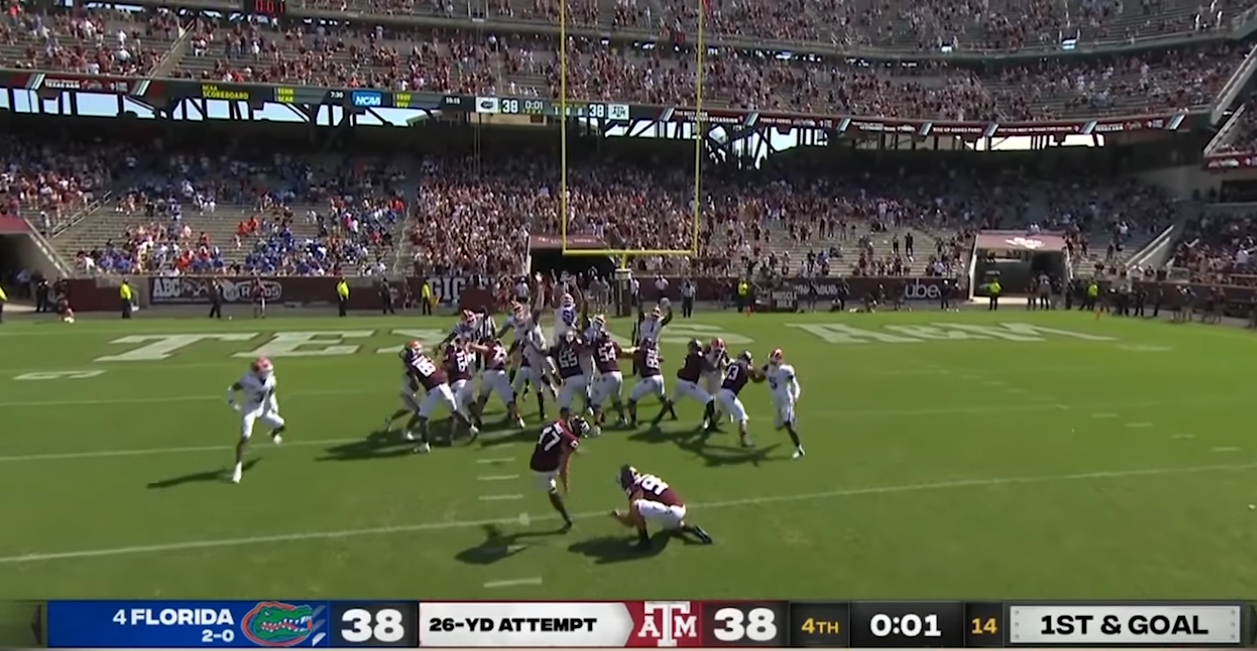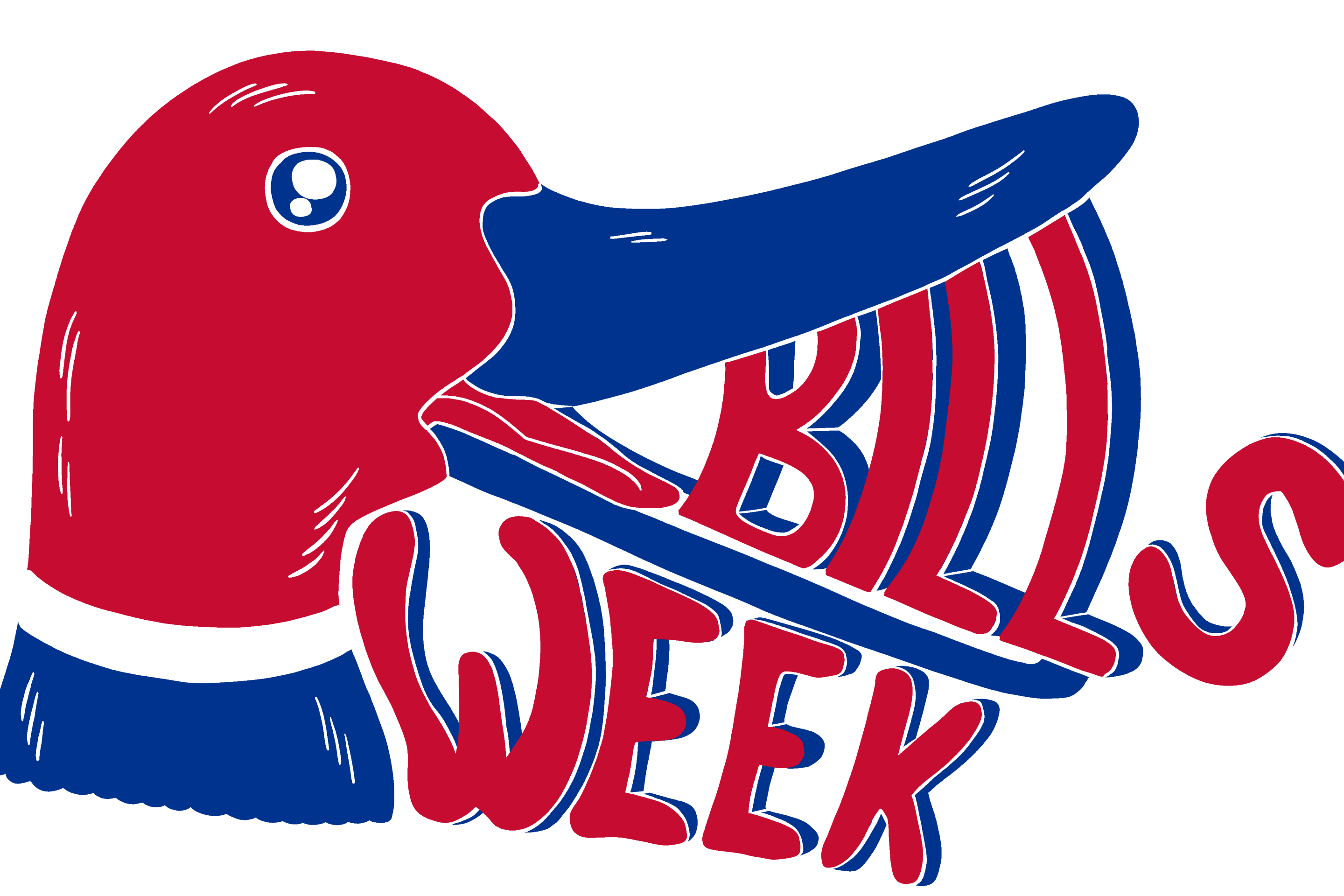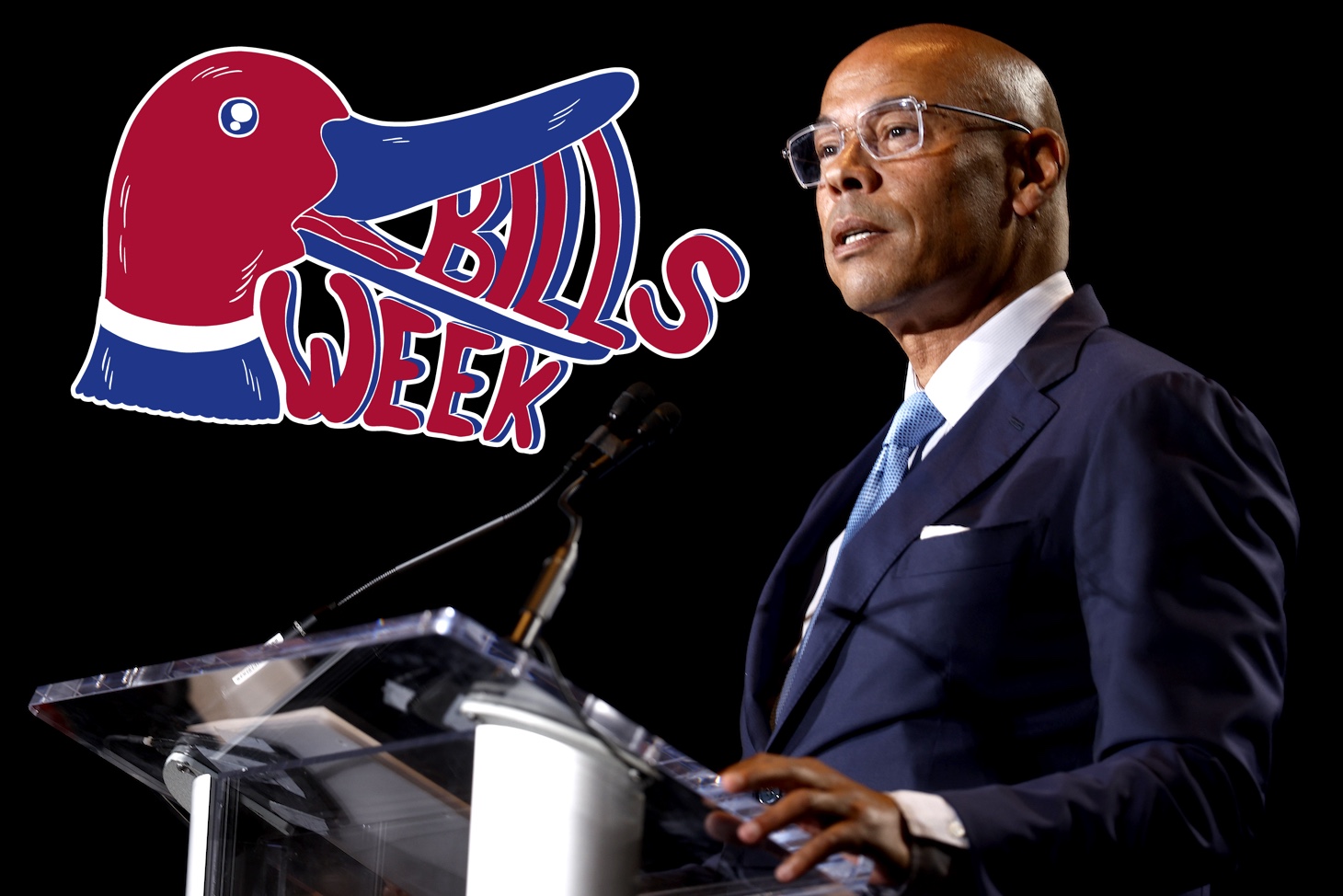Thanks in part, perhaps, to one of the loudest and largest crowds anywhere at a football game this fall, Texas A&M knocked off No. 4-ranked Florida at home with a last-second field goal on Saturday afternoon. The official attendance at Kyle Field yesterday was 24,709—already a shocking number for anyone who's lived through the last several months with their eyes open—but the way in which the quarter-full stadium was packed felt like a concerted strategy on the part of school officials.
The spacing was a strategy not to limit the spread of COVID, to be clear, but a strategy to maximize the effect of the crowd noise on the visiting team. While the worst seats in the house apparently went completely unsold, the student section in particular looked almost the same as it would during normal times.
“I can tell you one thing about our fans, they’re going to show up, no matter what, COVID or not,” A&M linebacker Buddy Johnson said after the game, unintentionally(?) highlighting the necessity of smart public leadership amid this pandemic.
UF head coach Dan Mullen took a different lesson from the loss, however. Mullen seemed more than a bit jealous of Kyle Field's atmosphere, and he called upon his employer to take full advantage of Florida Gov. Ron DeSantis's recent lifting of any capacity restrictions whatsoever on sporting events in the state. Mullen wants a full sellout for his team's next game against LSU, virus be damned.
"We have 90,000 in The Swamp to give us that home-field advantage that Texas A&M had today," Mullen said in the post-game.
"I know our governor passed that rule, so certainly, hopefully, the university administration decides to let us pack The Swamp for LSU next week. One hundred percent because that crowd was a major factor in the game. So I certainly hope our university administration follows the governor."
It should be obvious that a higher decibel level on the field against LSU isn't a good enough reason to risk a superspreader event in one of the states already hit hardest by the virus—and there's no indication yet that UF is actually going to make Mullen's dangerous scheme a reality—but at least among teams in the South, his comments foreshadow would could become a dangerous arms race over the next several weeks of the season.
Though every other restarted sport has had, if nothing else, at least some sort of centralized authority that can set standardized safety protocols and determine if games should even happen, each college football program has essentially been able to, in conjunction with local governments, decide for itself how much it wants to respect the reality of an infectious disease. While the Big Ten is planning to go without fans for its season, the SEC and Big 12 have boasted crowds of varying sizes throughout the first month of the year. And while, in the pros, one positive test can be enough to derail the schedule, it's already become common to see college teams try to will themselves through outbreaks that leave them shorthanded—or just be extra secretive about whether or not they've been hit by COVID at all. Virginia Tech, for example, has missed over a dozen players in each of the last three weeks, but the school has refused to specify if these absences are due to a contagious virus or noncontagious injury.
Even a passing familiarity with how America has handled COVID tells you that this only gets worse from here, that rising case numbers will only make people dig in their heels rather than stop going to football games. Now that fans, players, and coaches have experienced games at 25 percent capacity, the only question is not what it would take to roll back restrictions, but when teams will play before a full house. And though Dan Mullen may have to settle for reduced capacity at the Swamp next weekend, in an environment where everybody is desperate to gain any edge they can, scenes like the one in College Station will become normalized regardless of public health realities.
It's the coaches, after all, who have the most power in their state when it comes to determining how these games are run. This is the possibility I kept pondering while watching games on Saturday: What if Nick Saban, faced with a must-win game against Auburn in late November, publicly and emphatically demands that Alabama allow a full house at Bryant-Denny? Who's going to tell him no?






